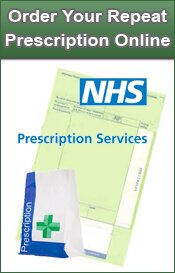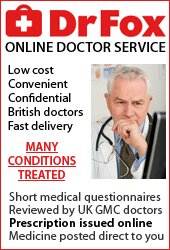Newfield Pharmacy NHS PrescriptionsIf you have a Valid NHS Prescription Your local Newfield (Dundnald) If you have a Repeat Prescription for you regular medication we can also help you to manage your supply and make sure that you FAQ'sWhat free prescriptions am I entitled to?The Scottish Government abolished prescription charges on 1st April 2011. No charges will be payable in relation to any Scottish, Welsh or Northern Irish prescription forms that are presented to pharmacists in Scotland, Wales or Northern Ireland. Charges continue to be payable in relation to English prescription forms which are presented to pharmacists in Scotland (unless the patient is exempt on other grounds). Anyone who pays a prescription charge after 1 April 2011 but was entitled to be exempt, can claim a refund of the charge. How long is a prescription valid for?A prescription is valid for six months from the date given on the prescription, with the exception of prescriptions for controlled drugs (see Controlled drugs below). The date on the prescription can be either:
Where a prescription has both of these dates, the six months runs from the later of the two dates. Repeatable prescriptions Repeatable prescriptions that contain directions that the same prescription may be dispensed more than once must be dispensed for the first time within six months of the date given on the prescription. After this, the repeat prescription can continue to be valid beyond six months in accordance with the directions on the prescription. Controlled drugs Controlled drugs are drugs such as morphine, pethidine and methadone. These medicines are often misused, so have stricter legal controls on their supply to prevent them being obtained illegally. A prescription for a controlled drug is valid for 28 days from the date given on the prescription. If you have a prescription for a controlled drug that directs that the drug should be dispensed to you in a number of instalments, the first instalment must be dispensed within 28 days of the date on the prescription. Who can prescribe an NHS prescription (prescriber)NHS prescriptions are most commonly written by your GP for you to take to your community pharmacist (chemist) to collect. From 1 May 2006, qualified Nurse Independent Prescribers (formerly known as Extended Formulary Nurse Prescribers) are able to prescribe any licensed medicine for any medical condition within their competence, including some Controlled Drugs. Doctors working in NHS hospitals also write NHS prescriptions. In most cases, you will be asked to take your prescription to the hospital pharmacy to pick up your medicine. Sometimes you will be asked to take your prescription to your local chemist - usually when the hospital pharmacy cannot supply your medicine. An NHS dentist can also provide you with an NHS prescription if you need treatment for a dental or oral condition. Pharmacists and some health professionals, such as physiotherapists, chiropodists and radiographers, can also prescribe medicines for NHS patients if they have followed another particular training course. (Supplementary prescribers - see below) Supplementary prescribers are pharmacists, chiropodists/ podiatrists, physiotherapists and radiographers who have undergone specialist training. They may prescribe any NHS medicine provided it is in partnership with an independent prescriber who establishes the initial diagnosis and starts the treatment. The supplementary prescriber then monitors the patient and prescribes further supplies of medication when necessary. Can I pick up a prescription for someone else?Collecting a prescription from the GP surgery You can collect a repeat prescription for a friend or relative from the GP surgery. You will usually be asked to confirm the name and address of the person you are collecting the prescription for. The GP surgery is not legally required to check your identity, but it is considered good practice to check to prevent the wrong prescription being given out to a patient.
|



 Ltd pharmacy will be more than happy to dispense your medictaion for you. We provide a fast and professional medicine dispensing service at all our pharmacies with the oportunity to
Ltd pharmacy will be more than happy to dispense your medictaion for you. We provide a fast and professional medicine dispensing service at all our pharmacies with the oportunity to


